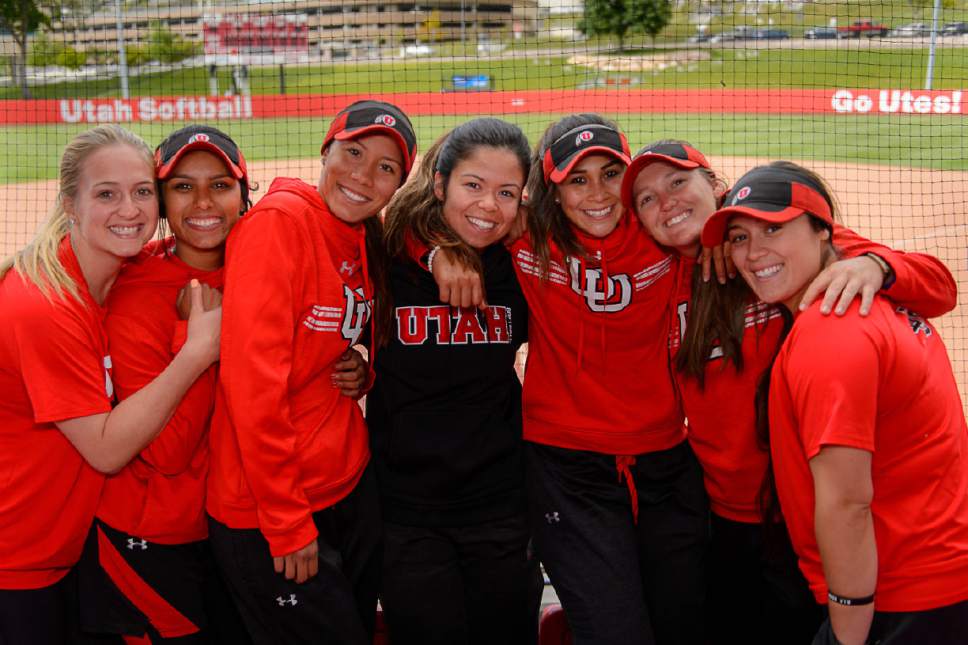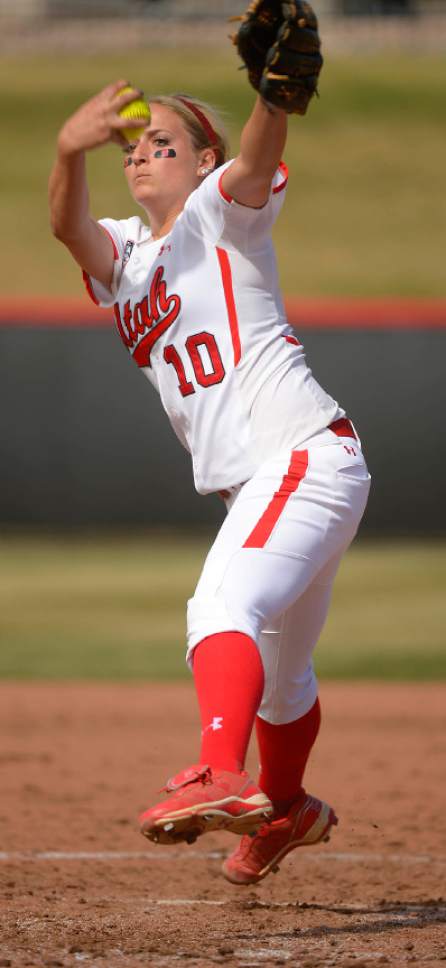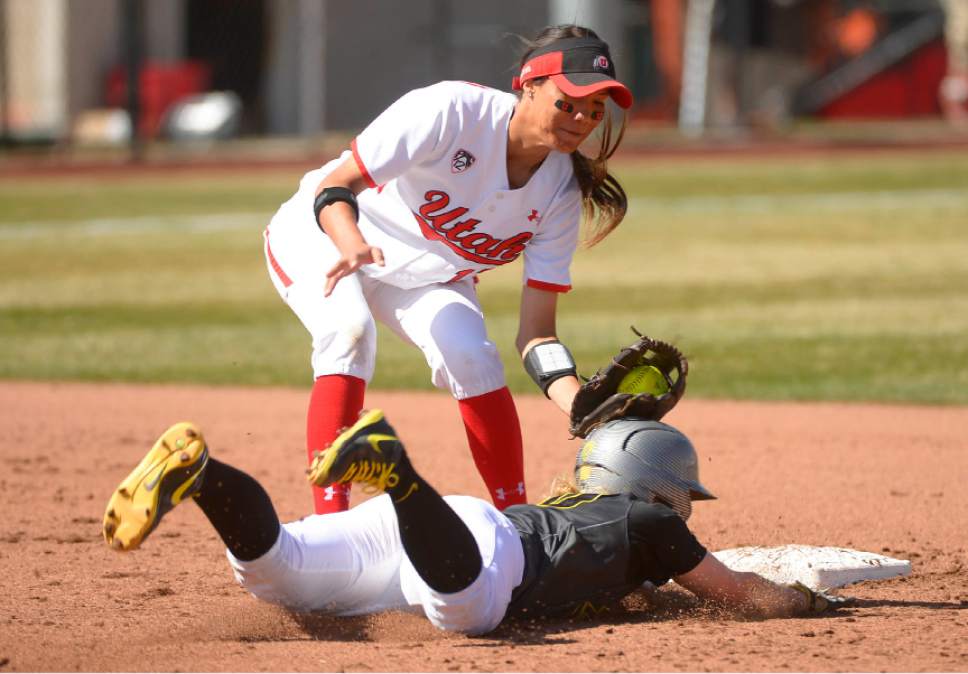This is an archived article that was published on sltrib.com in 2017, and information in the article may be outdated. It is provided only for personal research purposes and may not be reprinted.
Before she could swing away in the batting cages, before she could hear the roar of a crowd at her back, before she could experience the anxiety of waiting for her team to appear on a bracket, Bridget Castro had to believe.
She was 15 when she committed to Utah over the phone, never having seen the campus. When she went on her official visit later that year, she saw the bare patches where coaches told her great things were in the works, which was bold for a team that hadn't been to the NCAA Tournament since 2006.
"We came here, there was dirt; that was it," the now-senior first baseman said. "There were a lot of things being built. But we didn't see it, we just saw construction. So we had to visualize it. We had to say, 'This stuff is going to be there for us. It's going to be great.' "
Years later, things are great — arguably greater than they have ever been for Utah softball (33-14, 13-9).
On one of those former dirt mounds is 1,410-seat Dumke Family Softball Stadium, which will host an NCAA regional for the first time, a mark of how far a program that went through an eight-year postseason drought has come. This season, Utah was ranked as high as No. 10 in the country and featured six all-Pac-12 honorees, including two-time conference Player of the Year Hannah Flippen.
That success was built on the back of Utah's seven seniors, particularly Flippen, Castro, Anissa Urtez, Sammy Cordova and Bella Secaira, who gave coach Amy Hogue some of her first commitments as the program transitioned to the Pac-12. They're living what they once dreamed, even when no one else saw what was being built.
"I don't want to just walk in somewhere and have it be easy, because that's not fun for me," Hogue said. "Coming into here, I told myself that I wanted to make this program better and make it into one of the top teams. And I think this senior class has been able to do that."
It took persuading: Hogue had never taken one of her Utah teams to NCAA regionals. Her stadium was in the works. Other amenities that have become familiar in recent years — modern weight rooms, an athlete dining area, support staffers such as nutritionists and psychologists — were not yet available.
But she did have one thing going for her: the promise of the Pac-12. Hogue and her staff talked with club coaches they trusted, looking for talent — particularly in California — that they wanted to build something with.
"These kids wanted to play at that top level," Hogue said. "And the ones that I picked were either overlooked by those other programs, or we beat them to the kids — a little bit of both."
It's common to hear players recount recruiting stories of talking to Hogue for hours on the phone at a time — not necessarily about softball, but about their lives. They also were sold on Utah's family atmosphere, feeling that Hogue and her assistants would be there for them no matter what.
"They just have genuine feelings for the girls that commit," Flippen said. "They're our second family out here. We need that closeness and family. That's what we felt when we showed up here."
Even with the signing class secure, there was a lot to figure out once the players arrived. An outfielder in high school, Castro was placed at first. Urtez, a third base recruit, was placed at short. Flippen had a lot to learn about second base.
That year, the Utes had the third most errors (65) in the Pac-12 with three freshmen starters in the infield.
"Coach A had to really coach us in that freshman year because we didn't really understand the positions we were at," Urtez said. "We had a lot of stops in the middle of practice just to get the learning going."
But the early investment in the talent paid off in the long run. This season, Utah leads the Pac-12 in double plays (28) as Castro, Flippen and Urtez have blended together with four years of starting experience. Utah also had the fifth best batting average and the third-best ERA in the league this season as it pushed toward the top programs in the country.
Since the senior class arrived, Utah's arc has been trending upward. As sophomores, the now-seniors returned to the NCAA Tournament in 2015. As juniors, they went to Super Regionals after winning the regional in Lexington, Ky.
They made a big splash earlier this season by sweeping UCLA (tied for third) in Westwood, where Utah had struggled to win. Many of the California players on Utah's roster grew up dreaming of being Bruins, only to be overlooked as recruits.
But as excited as it's been to achieve some new milestones this year, the team, as always, has tried to keep its focus ahead. Its aiming for its first College World Series berth since 1994 (when Hogue was a player for the Utes), and it'll need to win this weekend, and then another Super Regional to get to Oklahoma City.
The seniors raised the bar for a program that didn't have much going for it when they got to Salt Lake City. But thet believe they aren't done yet.
"We're big on making our own history," Castro said. "We want people to remember our class."
kgoon@sltrib.com Twitter: @kylegoon







